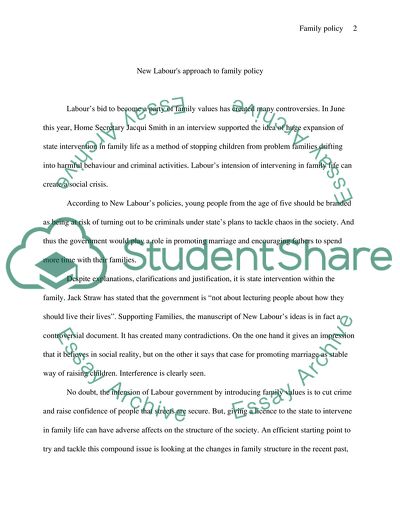Cite this document
(New Labour's Approach to Family Policy Essay Example | Topics and Well Written Essays - 1500 words, n.d.)
New Labour's Approach to Family Policy Essay Example | Topics and Well Written Essays - 1500 words. https://studentshare.org/politics/1717995-critically-evaluate-new-labours-approach-to-family-policy-using-examples-from-recent-policy-to-illustrate-your-answer
New Labour's Approach to Family Policy Essay Example | Topics and Well Written Essays - 1500 words. https://studentshare.org/politics/1717995-critically-evaluate-new-labours-approach-to-family-policy-using-examples-from-recent-policy-to-illustrate-your-answer
(New Labour'S Approach to Family Policy Essay Example | Topics and Well Written Essays - 1500 Words)
New Labour'S Approach to Family Policy Essay Example | Topics and Well Written Essays - 1500 Words. https://studentshare.org/politics/1717995-critically-evaluate-new-labours-approach-to-family-policy-using-examples-from-recent-policy-to-illustrate-your-answer.
New Labour'S Approach to Family Policy Essay Example | Topics and Well Written Essays - 1500 Words. https://studentshare.org/politics/1717995-critically-evaluate-new-labours-approach-to-family-policy-using-examples-from-recent-policy-to-illustrate-your-answer.
“New Labour'S Approach to Family Policy Essay Example | Topics and Well Written Essays - 1500 Words”. https://studentshare.org/politics/1717995-critically-evaluate-new-labours-approach-to-family-policy-using-examples-from-recent-policy-to-illustrate-your-answer.


